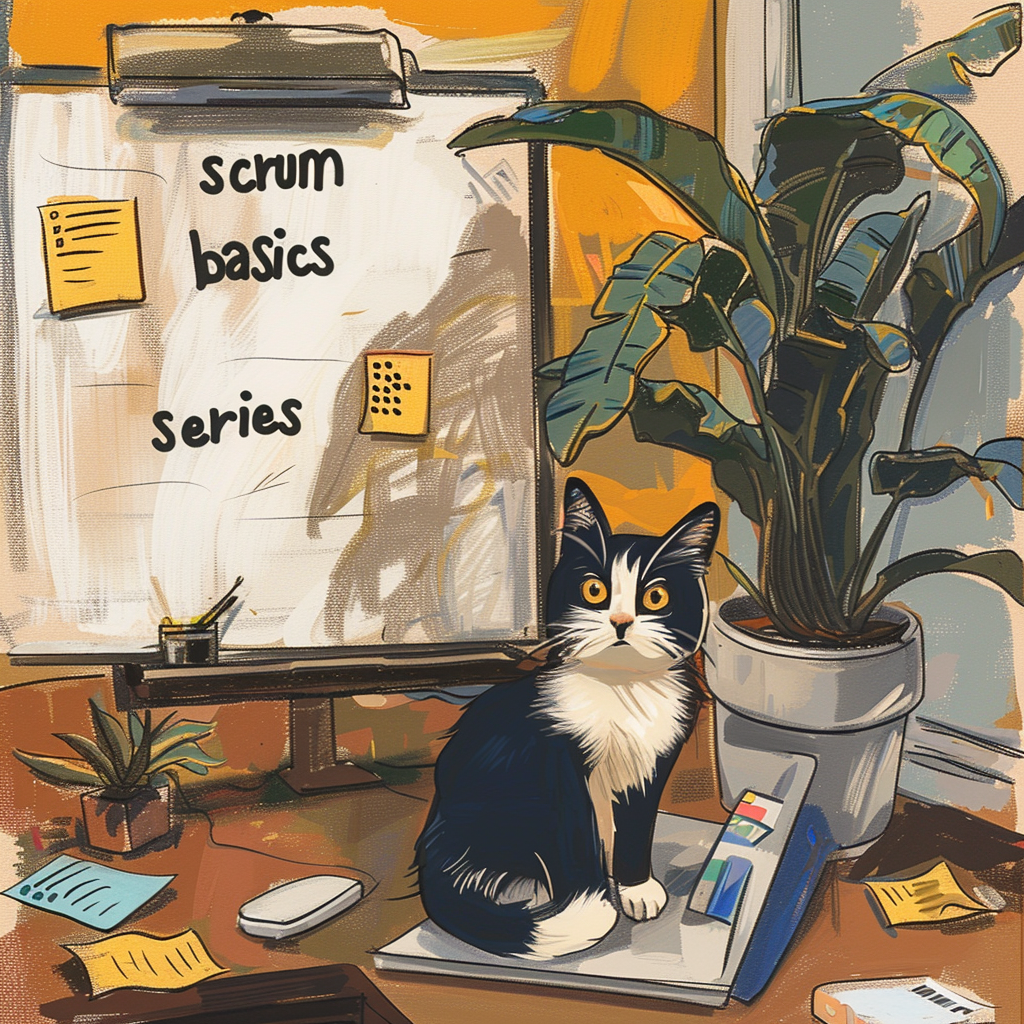Scrum for Beginners 3-5-3 Part 3: Scrum Master Role and 3 Pro-Patterns

Hello! This is Part 3 of a series on scrum using the 3-5-3 framework (3 roles, 5 events, and 3 outputs) where we use the Scrum Guide as a base for our learning.
In this article we will cover:
- What is the scrum master role in scrum?
- What does a scrum master do in scrum? What do they not do? 🌸
- 3 pro-patterns for a scrum master in a scrum team 🌸
Click the emoji to jump to each section in the article.
What is the Scrum Master role in scrum?
The scrum master role exists in name only in the scrum framework. In practice, the scrum master is a coach, a teacher, a mentor, and a servant leader. Let's refer to the Scrum Guide for what the scrum master is.
As a tip, if you want to know basic information about scrum, the Scrum Guide is a fantastic resource.
The Scrum Guide says:
The Scrum Master is accountable for establishing Scrum as defined in the Scrum Guide. They do this by helping everyone understand Scrum theory and practice, both within the Scrum Team and the organization.
...the Scrum Master is accountable for the Scrum Team’s effectiveness. They do this by enabling the Scrum Team to improve its practices, within the Scrum framework.
From this, we understand that the scrum master has accountability of the scrum team's effectiveness and accountability to help everyone within the organization, not just the scrum team. "Effectiveness" is hard to quantify so the Scrum Guide has a long list of outcomes expected of the scrum master that we will look at shortly.
The Scrum Guide further clarifies the role further down:
The Product Owner is one person, not a committee. The Product Owner may represent the needs of many stakeholders in the Product Backlog. ...Those wanting to change the Product Backlog can do so by trying to convince the Product Owner.
For now, we can confirm that the scrum master works with the entire Scrum Team as well as the larger organization. It is a common misconception that the scrum master only works at the team level.
In order to to deepen our understanding, let's see what a scrum master does and doesn't do.
What does a Scrum Master do? What do they not do?
The Scrum Guide talks about the accountabilities of each role. This is what it says for scrum masters. These are also the fundamental outcomes expected of the scrum master role:
Scrum Masters are true leaders who serve the Development Team, PO, and the larger organization.
The Scrum Master serves the Development Team in several ways, including:
Coaching the team members in self-management and cross-functionality;
Helping the team focus on creating high-value Increments that meet the Definition of Done;
Causing the removal of impediments to the team's progress; and,
Ensuring that all Scrum events take place and are positive, productive, and kept within the time-box.
The Scrum Master serves the Product Owner in several ways, including:
Helping find techniques for effective Product Goal definition and Product Backlog management;
Helping the Scrum Team understand the need for clear and concise Product Backlog items;
Helping establish empirical product planning for a complex environment; and,
Facilitating stakeholder collaboration as requested or needed.
The Scrum Master serves the organization in several ways, including:
Leading, training, and coaching the organization in its Scrum adoption;
Planning and advising Scrum implementations within the organization;
Helping employees and stakeholders understand and enact an empirical approach for complex work; and,
Removing barriers between stakeholders and Scrum Teams.
Compared to the accountabilities for the developer role and the PO role, the Scrum Guide has stricter expectations of a scrum master.
Now that we understand what the scrum master does let's look at a few things the scrum master does not do.
The scrum master does not:
- Solve all of the team's problems
they are accountable for making problems visible and helping the team members to grow their skills so they can solve them on their own - Only focus on the scrum team
they are accountable for helping the team, yes, but also the larger organization, as stated in the Scrum Guide. Coaching teams too much is a common mistake for scrum masters without the ability to coach at higher levels in the organization - Manage people or processes
they are accountable for helping members inspect and adapt their current processes in order to improve in service to the team/organization's goals
3 pro-patterns for Scrum Masters in a scrum team
Here are 3 quick pro-patterns or good practices for scrum masters in a scrum team:
1. Involve the people you're working with in their own progress
The ultimate goal of the scrum master is to be redundant because all of the necessary skills exist in the team/organization. In order for a team or organization to get to that point, the scrum master supports them in becoming self-organizing and cross-functional. Seeking the advice, feedback, and support of the team and organization is a crucial part of the process. Find a good rhythm for feedback with the people you're working with so you can learn best how to support them
2. Lead by Example
Model desirable behavior as many times as necessary. One common model for this kind of approach is "I do, we do, you do" which comes from evidence-based learning. The idea is to model the desired behavior before moving on to doing the desired behavior together with the person learning, and finally having them do the behavior while you give feedback. This can be applied to soft skills, facilitation, new tools, public-speaking, writing code, etc
3. Embrace conflict
The scrum master role requires the soft skills to navigate conflict of all kinds. From making visible conflict to facilitating heated discussions about priorities, conflict navigation is an essential skill for the scrum master role. More than knowing the Scrum Guide cover to cover, the skill to guide others through conflict is invaluable
I hope this helps clear up some basic information about the scrum master role and gives you some inspiration for how you and your team can be more effective together.




